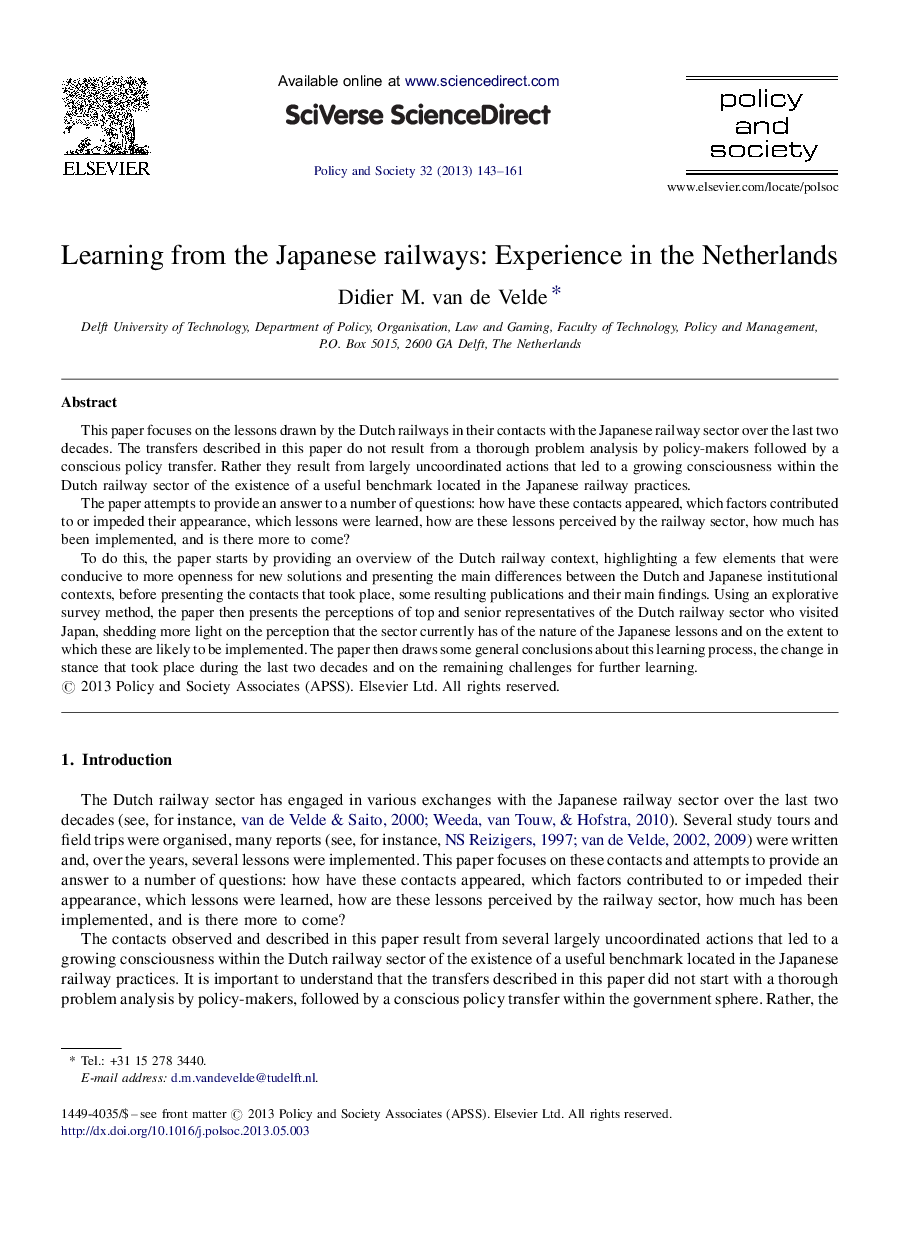| Article ID | Journal | Published Year | Pages | File Type |
|---|---|---|---|---|
| 1061445 | Policy and Society | 2013 | 19 Pages |
This paper focuses on the lessons drawn by the Dutch railways in their contacts with the Japanese railway sector over the last two decades. The transfers described in this paper do not result from a thorough problem analysis by policy-makers followed by a conscious policy transfer. Rather they result from largely uncoordinated actions that led to a growing consciousness within the Dutch railway sector of the existence of a useful benchmark located in the Japanese railway practices.The paper attempts to provide an answer to a number of questions: how have these contacts appeared, which factors contributed to or impeded their appearance, which lessons were learned, how are these lessons perceived by the railway sector, how much has been implemented, and is there more to come?To do this, the paper starts by providing an overview of the Dutch railway context, highlighting a few elements that were conducive to more openness for new solutions and presenting the main differences between the Dutch and Japanese institutional contexts, before presenting the contacts that took place, some resulting publications and their main findings. Using an explorative survey method, the paper then presents the perceptions of top and senior representatives of the Dutch railway sector who visited Japan, shedding more light on the perception that the sector currently has of the nature of the Japanese lessons and on the extent to which these are likely to be implemented. The paper then draws some general conclusions about this learning process, the change in stance that took place during the last two decades and on the remaining challenges for further learning.
